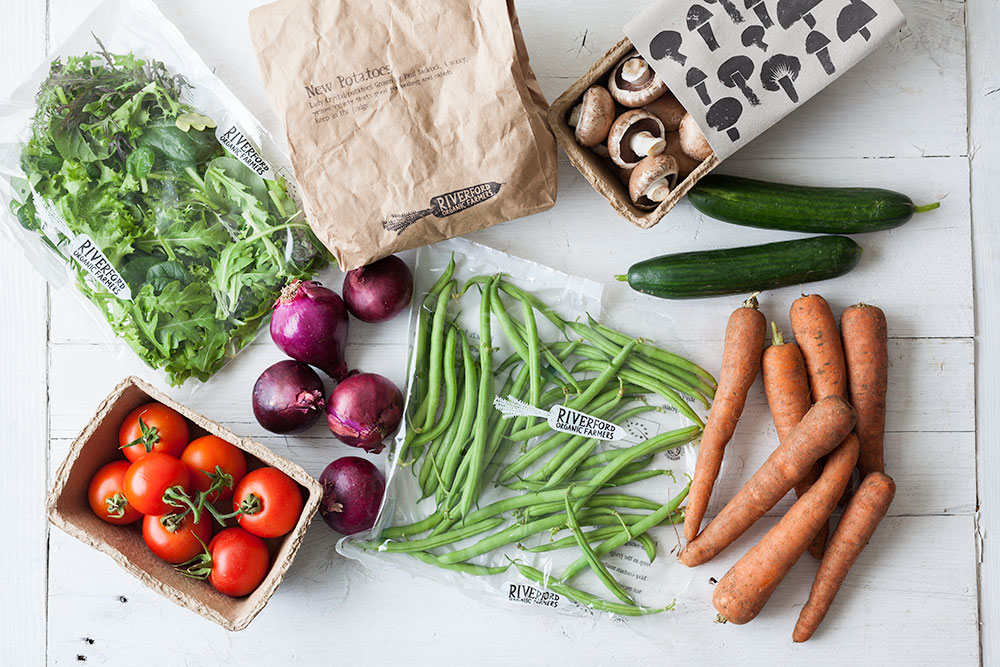As much as people might wish that we could do without packaging entirely, it plays a huge part in ensuring product quality and enabling distribution through our whole supply chain – from the boxes that loop between our farm and your door, to the punnets that hold our mushrooms secure in transit. In general, our ethos is that less is more: if the product is robust enough to travel without being damaged, then there’s no need to add unnecessary packaging. Although we already look consciously at our packaging, my role has been created to really make sure that we’re doing the best we can.
Consistent customer feedback, as well as thoughts within Riverford, have led me to rethink one item of our packaging first: plastic nets. We use these for items such as citrus and onions that are packaged in individual portions for people to add to their veg boxes or choose when building an individual order from scratch. My conundrum was this: we couldn’t get rid of nets entirely, as we rely on them to distribute equal-weight portions to every customer; and we couldn’t swap to another type of packaging without using even more material. I was stuck…But then I came across a really exciting company in Austria that produces biodegradable net alternatives made from beech wood.
Wood, making a net?
It sounds strange, but actually works beautifully, and is very environmentally friendly. The wood is a by-product from the forestry industry: when the trees in PEFC-certified sustainable forests grow to a certain height, some are thinned out to give the remaining trees space and light to grow. The thinned-out trees would normally be burned; however, the net provides an alternative use. The wood is chipped and broken down further into pulp, spun into a string-like material, then knitted together into a net tube ready for our products.
Needless to say, we decided to use the net – and in fact, have already started! We also have a large stock of plastic nets that we want to use up; you will still see some plastic nets in your boxes until we completely run out. We felt it would be wasteful to just throw away our existing stock, so as each plastic colour runs out we will replace it with the biodegradable version. Green and white biodegradable nets are already being used.
If you’re confused about what your net is made from, the feel will give it away: if it’s soft and natural feeling then you’ve got a biodegradable one. If it’s hard and plastic-y then it’s from the last of the plastic stock.
The way to dispose of your beech wood net is to cut off the metal clips (these aren’t biodegradable, though we are looking into alternatives) and put the net on your compost heap or in your council compost bin.
To find out more about our existing packaging and research with the University of Exeter, visit our packaging manifesto.

















I represent a net bag merchant in the uk trying hard to find an eco friendly bag with drawstrings suitable for wood , vegetables, with drawstrings. We currently import 90% of our requirements from China which are plastic woven nets and knitted nets in a number of different colours both plain and with printed bands around the centre. We have a number of 45ft containers arriving every year. It would be very nice to find a supplier who can produce nets for us which are biodegradable. Our nets are in several different sizes the biggest internal measurements 52×85 cms and smallest 20×27 cms. If you or any contacts you have, can help us find a supplier of net bags in biodegradable materials, we woukd be very interest to hear from you. Many thanks Bill Smith
Hi Bill,,thanks for your comment and interest in this story. Try this company – they supply the beech nets that Riverford has switched to: https://vpz.at/en/. Thanks!